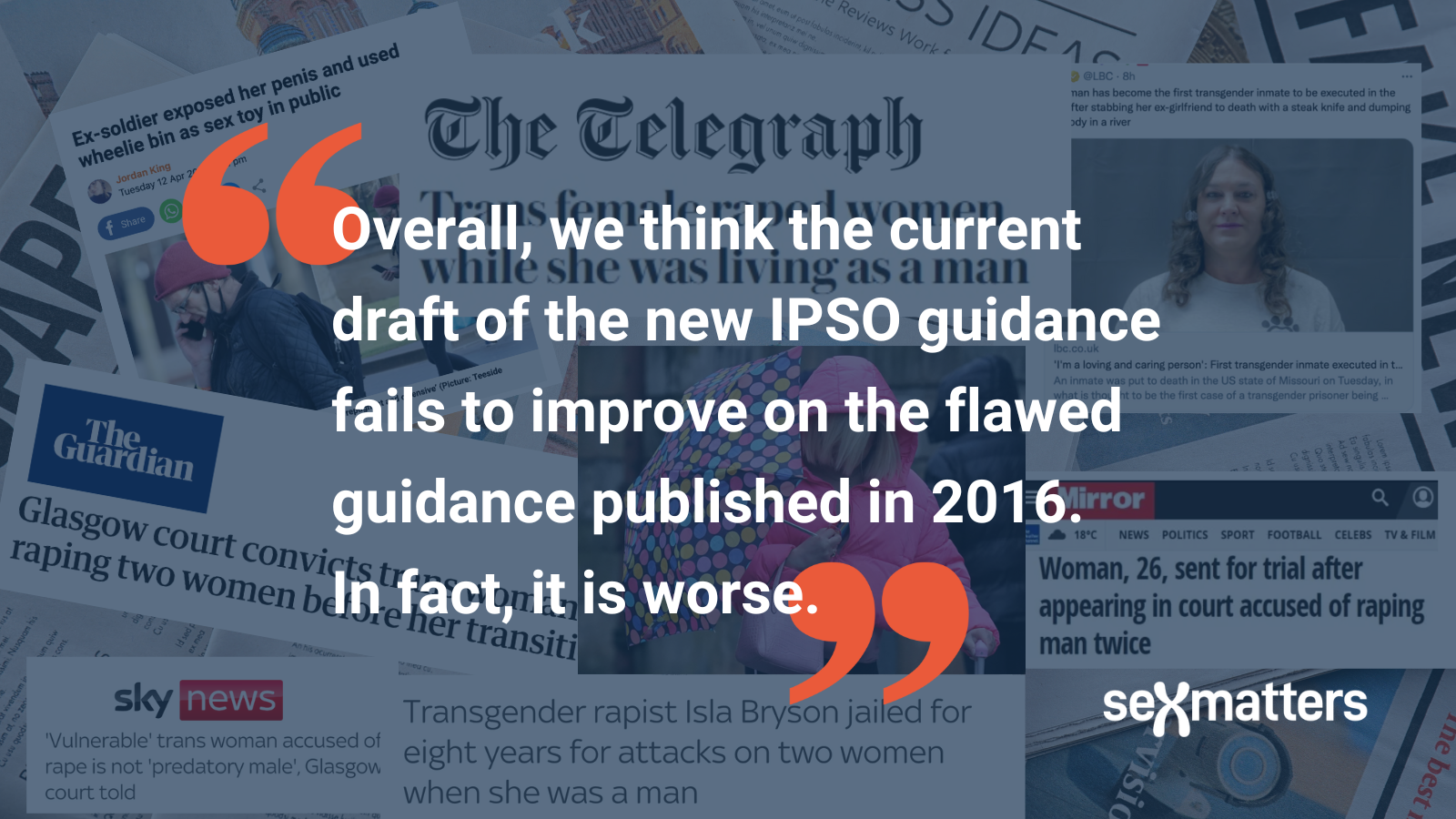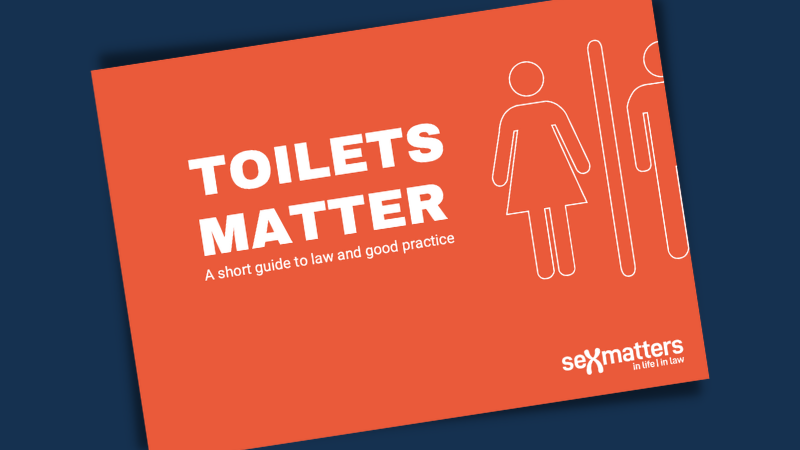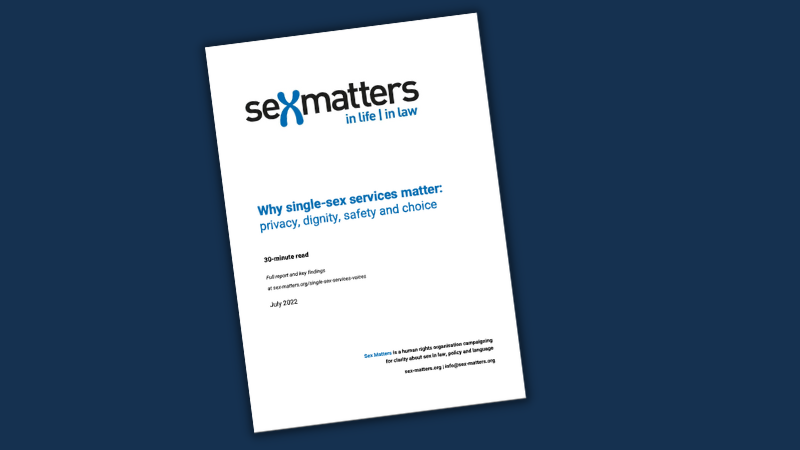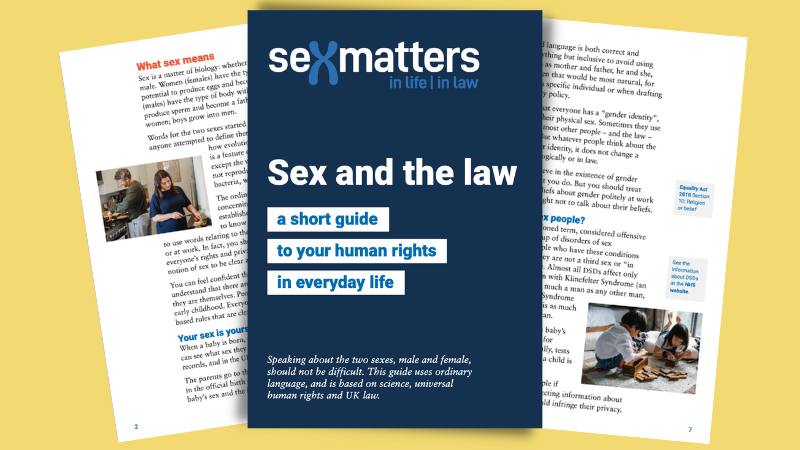Regulators
Regulation is “the management of complex systems… according to clear rules and the law”. Regulators must apply rules fairly and consistently.
That duty means that where sex matters to the performance of their functions, regulators need to be impartial and communicate and enforce clear rules about sex.
Such areas include: record-keeping and data protection, separate-sex facilities, safety, privacy, equality and inclusion, risk assessment and management.
Understanding sex and gender should not be difficult
What is sex?
Sex is a matter of biology: whether someone is female or male. Women (females) have the type of body with the potential to produce eggs and become a mother. Men (males) have the type of body with the potential to produce sperm and become a father.
In general, laws and rules treat men and women equally and without discrimination. Different treatment on the basis of sex may be justified only by weighty reasons. Where different treatment is justified, so are clear rules.
What about gender?
Some people identify as transgender or non-binary. This means that they prefer to refer to themselves in a different way, rather than using ordinary words for their sex, and they may change their appearance and prefer that other people do not refer to their sex, some or all of the time.
Their feelings relating to their identification can be important to them, but do not change their sex.
Regulators and regulated entities must protect the human rights of transgender people without undermining other people’s rights.
Sex matters for regulators if they are:
- collecting data on sex
- dealing with interpersonal contact (in situations such as healthcare and education)
- providing clear separate-sex facilities
- complying with the Equality Act and the Gender Recognition Act
- reporting on equality between women and men (e.g. “gender pay gap”)
- creating cultures of impartiality where people can speak up without fear.
Many regulators are facing issues
IPSO is rewriting its guidance on covering trans issues. It should make clear that there is no blanket ban on “misgendering”.
The Financial Conduct Authority has left it up to companies to determine how they define “men” and “women” in diversity reporting.
The HSE regulates many workplaces, including provision of toilets. It may need to provide clear guidance on how to maintain separate-sex facilities.
Social Work England has subjected social workers to regulatory action for expressing “gender-critical” views in private.
The EHRC has developed new guidance on single-sex services and is now revising its statutory codes.
Healthcare providers must provide same-sex accommodation and healthcare staff, but the Care Quality Commission does not record the actual sex of healthcare staff.
Ofsted is receiving complaints from parents where “trans inclusion” policies lead to sex- based rules and safeguards being ignored.
The Bar Standards Board has issued draft social-media guidance which suggests it could be professional misconduct to “misgender” someone online.
Relevant publications
-

IPSO’s updated guidance – our response
IPSO, the Independent Press Standards Organisation, has published draft Guidance on reporting of sex and gender identity to replace its 2016 publication, Guidance on researching and reporting stories involving transgender individuals. Sex Matters has written a response to the consultation and hopes that the final guidance will be improved...
2nd March 2023
-

Why sex matters for human rights – our organisational framework
Sex Matters’ mission is to promote clarity on sex in law and policy in order to protect everybody’s human rights. This document sets out the key human rights that are relevant, and why and how our work is guided by the promotion of human rights. (Also see our short guide...
-

Toilets matter – a short guide to law and good practice
For any organisation that provides toilets for customers, visitors, staff or students – this guide will help you think through your choices, identify risks of discrimination and harassment, and provide clarity to users. Links to the documents referenced in the guide.
-

Why single-sex services matter: privacy, dignity, safety and choice (full report)
Full report (133 pages): see also 30-minute read and key findings. Over the past few years many single-sex services and spaces have been changed to mixed sex, but few of the people who use them have been asked how they feel about this. Our report amplifies those voices.
-

Why single-sex services matter: privacy, dignity, safety and choice (key findings)
Key findings: see also full report (133 pages) and 30-minute read. Over the past few years many single-sex services and spaces have been changed to mixed sex, but few of the people who use them have been asked how they feel about this. Our report amplifies those voices.
-

Why single-sex services matter: privacy, dignity, safety and choice (30-minute read)
30-minute read: see also full report (133 pages) and key findings. Over the past few years many single-sex services and spaces have been changed to mixed sex, but few of the people who use them have been asked how they feel about this. Our report amplifies those voices.
-

Sex and the law
A short guide to your human rights in everyday life.
Speaking about the two sexes, male and female, should not be difficult. This guide uses ordinary language, and is based on science, universal human rights and UK law
